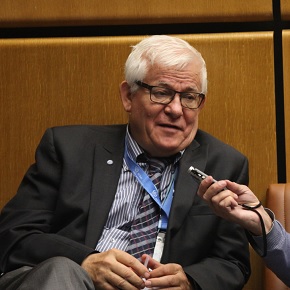 |
||
|
China needs to have its own isotope production to ensure supply stability AtomInfo.Ru, PUBLISHED 07.06.2020 Indeed, China, with few exceptions, is dependent on imports of radioisotopes, which is why we call a breakthrough the recent start of strontium-89 production by the nuclear institute, says Guo Lili, head of thе China Isotope and Radiation Association. From the perspective of global integration, there is nothing wrong with using imports to provide isotope requirements. But let's look at trade friction between the US and China. Western countries do not work according to market rules; they control exports and imports. Therefore, China needs to have its own isotope production to ensure supply stability. Otherwise, it may happen that imports to China are interrupted, and this will affect the entire medical industry, and medicine is not just an industry, it is people's needs for life and health. Many foods are cheaper to buy in the US than to produce themselves. However, many countries, including China, tend to be self-sufficient in food and not dependent on US supplies, says Guo Lili. Topics: Asia, China, Isotopes, Opinions Other news: The first batch of MOX fuel was loaded into the reactor at the Beloyarsk NPP The complete MOX-core is planned in 2021. 441 nuclear unit is operating in the world Another 54 units are under construction. WANO, IAEA, EPRI collaborate to help new nuclear power units to start up safely and on time The white paper is available here (bottom left section to download). |
Hero of the day 
Managing Nuclear Knowledge - A Forward Looking Story Knowledge management came into existence as a new stream in the distinct area of information management at the beginning of the 90-ies. Many believe that the term "knowledge management" has been invented by the consulting community. INTERVIEW
William D. Magwood, IV OPINION
Alexey Lankevich |

